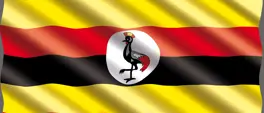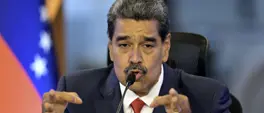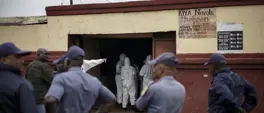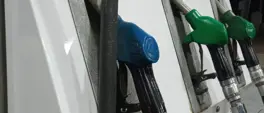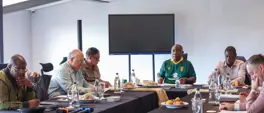CHRISTOPHER FRY: Setting the record straight on the Powers Bill
Christopher Fry
25 January 2024 | 10:40Nothing about this bill is based on race. Nothing about this bill is based on class. And absolutely none of it is based on the pipedream of secession, writes Christopher Fry.
OPINION
To answer the inflammatory question posed in Yonela Diko’s recent opinion piece, Secession Bill - in search of a Volkstaat? No. Absolutely not.
The Western Cape Provincial Powers Bill is not in search of a volkstaat. Nor is it secessionist, racist, or any of the other descriptors that have been ascribed to it by a hysterical and transparent smear campaign in recent weeks.
The bill’s purpose is in fact abundantly simple: firstly, it seeks to enhance service delivery by bringing new solutions to problems that the African National Congress (ANC) national government has failed to solve. Secondly, the bill forms a blueprint for a new model of governance in South Africa – one which will move decision-making closer to those affected by those decisions.
As things stand, South Africa is beset by crises. Unemployment, crime, and load shedding have spiralled out of control, and ineffective half-measures by the ANC at a national level have done little to abate this.
The simple reality is that South Africa has reached a point at which we can no longer continue, and at which urgent action is needed. This assessment is one that few in South Africa – perhaps not even Mr. Diko would deny.
At the same time, the Western Cape government (WCG) has found itself hamstrung by a lack of options to build on its success and improve service delivery.
While it has made progress in areas such as safety, public transport, and trade, the fact remains that these are ultimately national competencies – but ones that have been critically neglected.
The Powers Bill is the latest in the Democratic Alliance’s (DA) efforts to do whatever it takes to improve service delivery and create jobs.
The Powers Bill will enable the Western Cape Government to negotiate its own, province-specific trade agreements with territories across the world, and ones that cater to the unique needs and value propositions of our economy.
Through the devolution of this competency, more money will flow into the province, and exports will flow out. This latter factor, exports, is the reason the bill also concerns itself with harbours, as the clogged state of the Port of Cape Town has become a major stumbling block to economic advancement.
The DA believes the Western Cape government has workable plans to resolve these issues, reinvigorate our economy, and create jobs. Of course, building the rail and public transport networks necessary to get our people to these new jobs is also an area of focus.
But the bill is not just about economics. The Western Cape Government has a proven track record in delivering enhanced safety to our people, with the Law Enforcement Advancement Plan (LEAP) programme, K-9 and Rural Safety Units, the Peace Officers programme, and many other successful measures, taking up much of the slack left by dwindling allocation of resources to our province on behalf of the South African Police Service (SAPS).
Through superior equipment and data-led deployments and dispatches, these officers have confiscated hundreds of illegal firearms and arrested thousands of drug traffickers - even though this is not the Western Cape government’s mandate.
If it were, the WCG would be able to bring these methods to scale, and rapidly improve safety. We understand that there is no silver bullet to the problem of crime in South Africa, but it has become clear that SAPS is not up to the task.
One way or another, we have to make a change.
The same is true of the energy crisis. While there are no overnight solutions, the Western Cape Government has made better progress than the national government, even though it is not responsible for electricity generation.
In Cape Town, it is already routine to see less or no load shedding even as the rest of the country is plunged into darkness, and large-scale renewable energy projects are moving ahead in George and Hessequa municipalities.
When completed and combined with the energy the provincial government is working to acquire from Independent Power Producers, these projects will take entire towns off the grid, and consign load shedding to the past for good.
The DA will do everything in its power, including passing this bill, to ensure no obstacles are left in the way of this decentralised and most importantly functional model.
Yes, this bill represents a great leap in the story of democracy in our country. It has to be, for our party sees this bill as the next step in expanding democracy in our country, putting power back in the hands of our people, and fixing our country’s shattered service delivery capability.
But nothing about this bill is based on race. Nothing about this bill is based on class. And absolutely none of it is based on the pipedream of secession.
The DA stands for none of these things. What we do stand for is a better future for all South Africans; one in which jobs are created by new trade deals, in which exports flow through rejuvenated and efficient harbours, and in which people can travel to work on reliable, safe, and affordable public transport; one in which criminals come face-to-face with a well-equipped, well-trained, and professional police service; one in which load shedding is consigned to the history books.
These are ambitious goals, and difficult to imagine given present circumstances. The Powers Bill represents a momentous step, but we firmly believe momentous steps are necessary if our country and everyone in it is to have any hope of realising its potential.
To believe otherwise is to succumb to the same petty fearmongering tactics upon which the ANC relies to win power election after election, even as the country disintegrates around us.
Now, more than ever is the time to try something new.
Christopher Fry is a member of provincial Parliament and the DA Western Cape spokesperson on the Western Cape Provincial Powers Bill.

